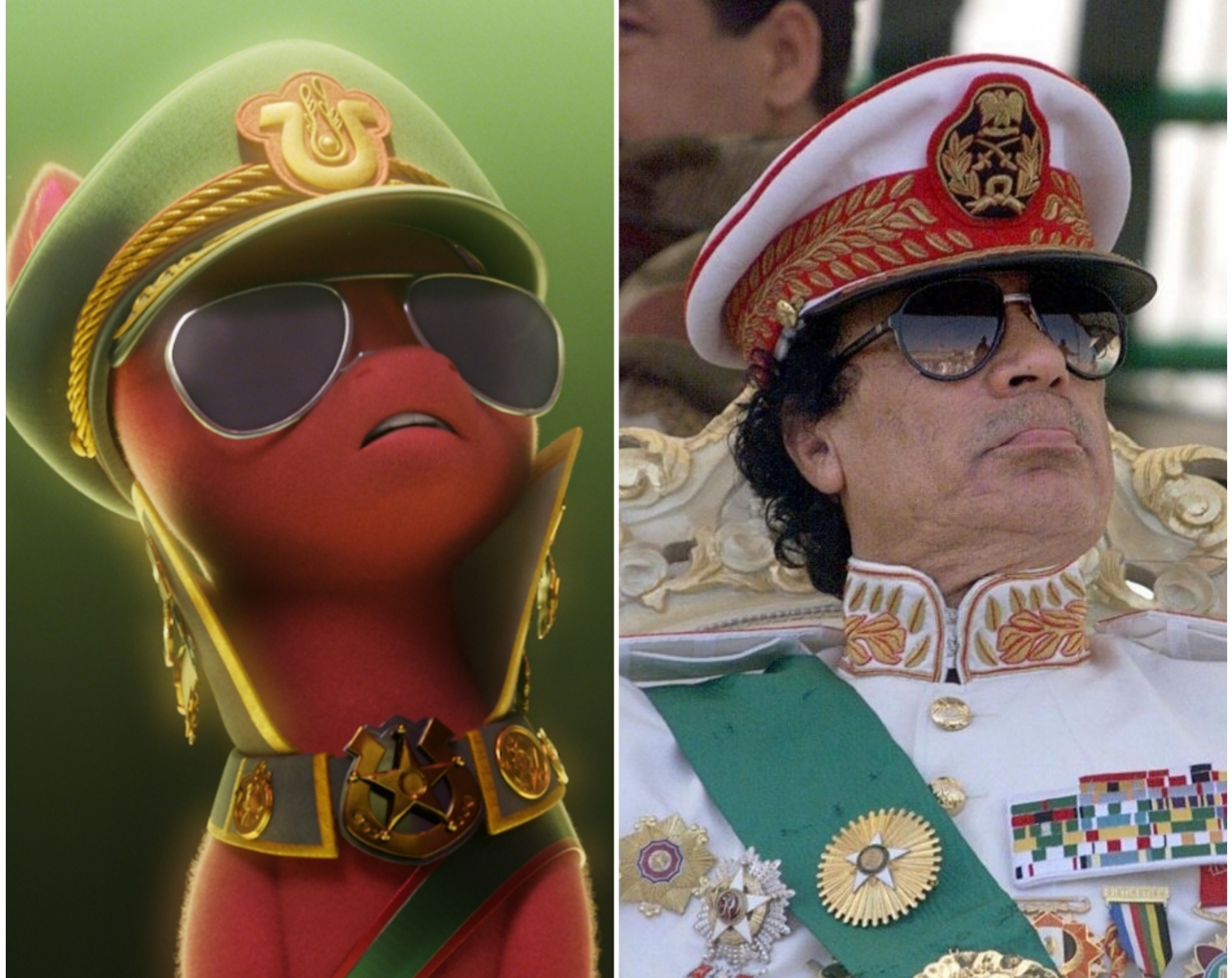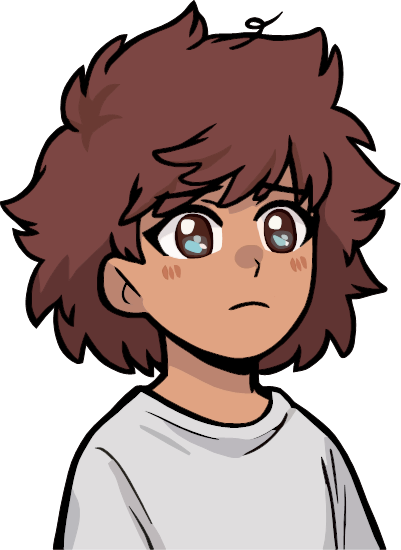the_dunk_tank
It's the dunk tank.
This is where you come to post big-brained hot takes by chuds, libs, or even fellow leftists, and tear them to itty-bitty pieces with precision dunkstrikes.
Rule 1: All posts must include links to the subject matter, and no identifying information should be redacted.
Rule 2: If your source is a reactionary website, please use archive.is instead of linking directly.
Rule 3: No sectarianism.
Rule 4: TERF/SWERFs Not Welcome
Rule 5: No ableism of any kind (that includes stuff like libt*rd)
Rule 6: Do not post fellow hexbears.
Rule 7: Do not individually target other instances' admins or moderators.
Rule 8: The subject of a post cannot be low hanging fruit, that is comments/posts made by a private person that have low amount of upvotes/likes/views. Comments/Posts made on other instances that are accessible from hexbear are an exception to this. Posts that do not meet this requirement can be posted to [email protected]
Rule 9: if you post ironic rage bait im going to make a personal visit to your house to make sure you never make this mistake again
Apple Jack is giving Twilight Sparkle the evil eye because she just lent her her copy of "Hammer and Hoof: Ponyville Communists During the Great Depression" but doesn't seem to have even read it or any older works by writers like Kyüti Marx.
Starlight Glimmer did nothing wrong!
Kyüti Marx


Its utterly ahistorical and revisionist, but at least serves to try and smooth the contradiction between working-class migrants and their native peers. Its also a children's TV show, so if you're not getting the full dialectical history of three centuries of Western Frontier politics... eh.
At some level, kids TV should just steer clear of this shit entirely, because you're not going to do it justice. But of all the shows I'm going to shit on for being liberal propaganda, MLP is trending towards the bottom of the list. I wish they had just... not. But also I live in a liberal hellscape so I'm not going to cry over a relatively minor offense.
I'm just saying it now, the School of Friendship from season 8 is a residential school.
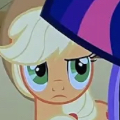
Applejack (the pony highlighted in the image) is on the settlers' side in that episode
Fucking labor aristocrat
I spend all day toiling in the meme mines and this is how you repay me
centrism is when the inconvenient fact of the indigenous people who cared about the buffalo population aren't even worth a mention.
(it occurs to me the possibility that the buffalo are explicitly a stand-in for indigenous people, but please don't try to tell me that makes it better. otherwise, i'd like to show you a picture of some random frankish warrior and tell you that both the mongols and the europeans have use of the european peninsula. lottttta different nations and peoples to be mashing together into one representative that can't have revolutionary intent right there.)
Unfortunately I regret to inform you the buffalo are native stand ins yes. The show is... Exceedingly bad about racializing characters.
There is for instance one zebra character on the show. Her introductory episode was about everyone doing racism towards her. She lives in a Darkest Africa themed voodoo shack in the middle of the Bad Forest, speaks in rhyme, and has gold bands around her neck. She was introduced in season like... 2, and the show ended on 9 seasons, and no other characters as racialized as her showed up
a post about my little pony in 2023
over 100 comments

If I could go back in time and retroactively erase one episode of the show from existence, it'd be this one
I haven’t seen this episode, but could it be possible that Twilight Sparkle is simply talking about how material conditions drive historical change, rather than trying to morally justify the actions of the settlers? She is the book nerd of the group, so it would make sense that she’s read theory and is maybe attempting a Marxist analysis of settler-colonialism in Equestria.
No, it's literally just a call to stop the active conflict. That happens by letting the settlers keep all the land but giving the buffalo a stipend of food. Like it's so absurdly egregious that there's no soft reading of it in context.
It also establishes the situation with the land use as a dichotomy between the settlers making productive use of the land vs the buffalo just leaving it barren and stomping around in it for fun. It does basically everything wrong, right up to its conclusion being that the buffalo stop resisting and just accept that the land isn't theirs anymore, but they get a little bit of food thanks to the "productive" use of their land by settlers. It is basically a manifest destiny storybook narrative.
Ok, yeah, that sounds pretty bad.
Uncritical support to the landless peasant buffalo in their struggle against Twilight Sparkkkle and her fellow pony settler-colonialists.

In this essay, I will
For shits and giggles I asked ChatGPT to generate a Marxist analysis of the episode, and this was the result:
My Little Pony: Friendship is Magic" (MLP: FiM) can be analyzed from a variety of perspectives, and using Marxist theory is certainly one way to provide a critique of its content and subtexts. "Over a Barrel" is a particularly relevant episode for this, as it deals directly with themes of colonization, land disputes, and cultural understanding.
-
Commodification and Land Ownership: The episode starts with the ponies transporting an apple tree, Bloomberg, to a distant town. This act in itself is a symbol of commodification – transforming nature into a product. The tree becomes a symbol of Applejack's capitalist endeavors, a means of expanding her apple business.
-
Colonization and Native Rights: When the ponies reach the town of Appleloosa, they discover that the settler ponies are in a dispute with the buffalo over the land. The buffalo claim that the land belongs to them and that they need it for their traditional stampeding grounds. The settler ponies, on the other hand, have begun to build a settlement and apple orchards on the land. This can be viewed as a parallel to historical colonization where indigenous populations were often pushed out of their traditional lands by settlers.
-
Cultural Hegemony: The settler ponies, representing the dominant cultural force, display a lack of understanding or respect for buffalo traditions. The ponies' expansion and settlement could be seen as an example of Gramsci’s concept of cultural hegemony – where one group's cultural norms and values dominate and marginalize those of other groups.
-
Conflict and Class Struggle: The central conflict between the buffalo and the settler ponies can be interpreted as a class struggle. The buffalo represent the oppressed proletariat, whose traditional ways and means of subsistence (the stampede) are threatened by the bourgeoisie represented by the settler ponies. The settler ponies’ apple orchard, particularly Bloomberg, can be seen as means of production, which they control at the expense of the buffalo’s traditional ways.
-
Resolution and the Status Quo: The conflict is eventually resolved through compromise. The buffalo agree to let the apple orchard stay as long as there's a path for them to stampede. While this seems like a happy ending, from a Marxist perspective, it can be viewed as maintaining the status quo. The bourgeoisie still controls the means of production (the apple orchard) while the proletariat (buffalo) have to adjust their traditional ways to fit the needs of the dominant class.
-
Interpersonal Relationships vs. Systemic Issues: One could critique the episode for resolving a systemic issue – colonization and land rights – through personal understanding and friendship. While interpersonal understanding and communication are important, they often don’t address the underlying systemic issues. From a Marxist standpoint, this could be seen as an oversimplification of the complexities of class struggle.
Conclusion: "Over a Barrel" provides a narrative that touches upon complex themes of colonization, land rights, and cultural hegemony. While the episode promotes understanding and friendship as a means to resolve conflicts, from a Marxist lens, it can also be interpreted as a narrative that simplifies systemic issues and supports the status quo. The episode offers a valuable platform for discussions on historical and ongoing struggles between indigenous populations and settler communities.
The hatred of My Little Pony's was the precursor to modern online fandom discourse. People's online response to this show (good, bad, or indifferent) warped how the internet talks about fandom in a major way and online culture as whole in a lesser extent.
People's response to this show (good, bad, or indifferent) warped how the internet talks about fandom and online culture.
On a positive note, though, I think it was also legitimately a gateway to questioning gender norms for a lot of people.
If the My Little Pony fandom was your gateway to questioning gender norms and eventually realizing you're a trans woman...
...Does that mean you got horsefemmed?
The MLP fandom died because all the people who liked it because they were closeted eggs realized they could just be trans and all the people who liked it because they were closeted furries realized they could just be furries and all the people who liked it because they were closeted fascists realized they could just be fascists.
I think a lot of the backlash was rooted in misogyny. "Oh no, how dare men like girl thing"
Remember that a big chunk of the historical fandom was weirdo fascist edgelords who wanted to fuck the ponies and wrote horny violent fanfics about them. One of the longest fanfics about anything (FOE:PH) is basically "Made in Abyss but it's ponies and set in a post apocalyptic wasteland."
The show's sudden widespread popularity always felt like a western version of Japanese otaku culture to me. People were making their own comics, fanart, radio plays, etc. It was like doujin circles. They even would stalk the voice actresses like creeps.
It's always been interesting to me how closely otaku and western nerds will come to imitating one another without significant contact with the other. There's like a platonic ideal of weird creepy nerd they're all drawing from in the ether. They even have their own weird fascist contingents. Japan invented incels too like in the 80s.
Really makes you wonder. This has to be the latest iteration of a longstanding phenomenon, yeah? Cus I just cannot imagine that sort of personality was just spontaneously generated by access to the internet.
I mean this painting exists
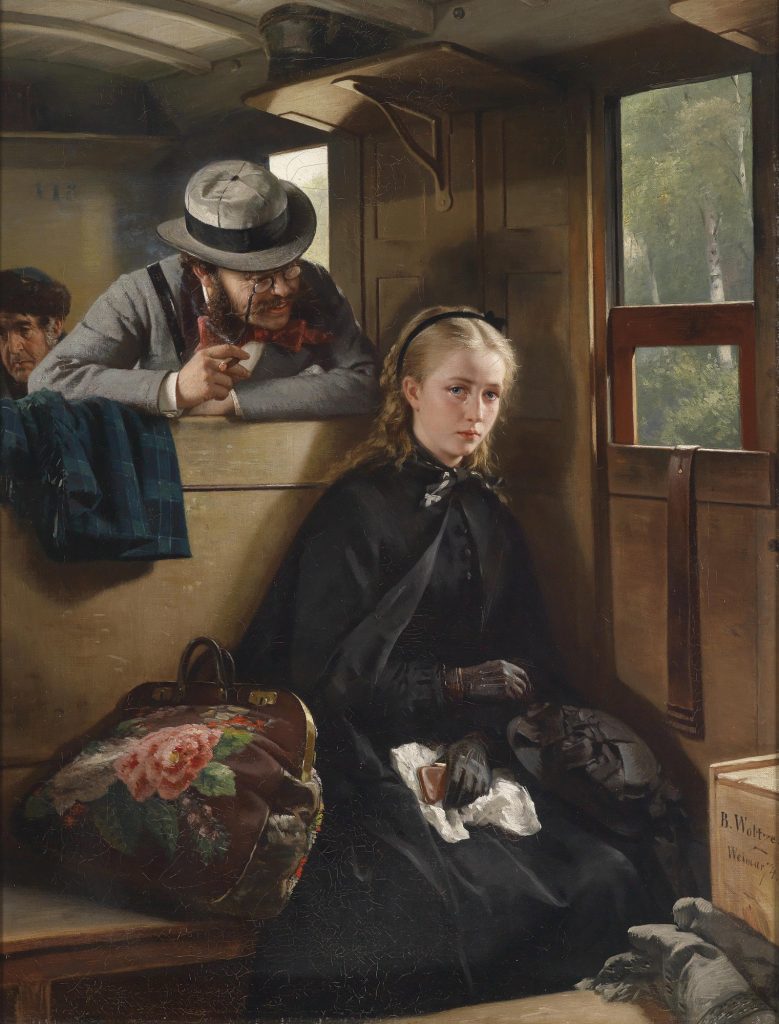
The hatred of My Little Pony's was the precursor to modern online fandom discourse. People's online response to this show (good, bad, or indifferent) warped how the internet talks about fandom in a major way and online culture as whole in a lesser extent.
Look in this thread. The old tiresome "X is for babies" symptomatic 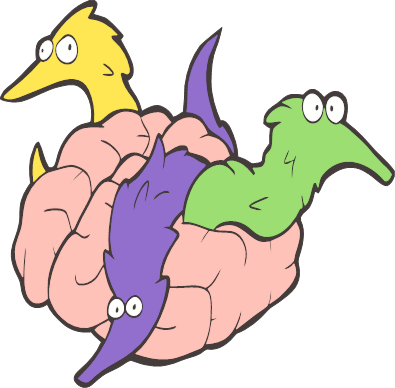 wriggling is on display.
wriggling is on display. 

